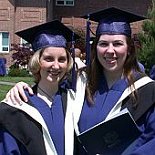Astronomy
ASTR1100 is a very popular lab-science course for non-science
students, and fills up rapidly during registration. If you find
yourself staring into the sky at night, or curious about the solar
system in general, or the universe in general, this is a great course
for you. As we increase our exploration of Mars, you may find
yourself more aware of what we are seeking.
- ASTR 3110 and 3111 both serve as upper liberal education credits for any Kwantlen bachelor degree.
Introduction to Astronomy
Students will study a wide range of topics in astronomy from the
point of view of a non-scientist. They will study topics including
the earth, solar system, stars, the Milky Way, galaxies and
cosmology and will discuss and study current events of
astronomical interest.
The laboratory component will include indoor experiments and
outdoor observation.
This is an introductory course in astronomy intended for students
not specializing in science. No prior study of physics or astronomy
is required.
This is an exploratory course in astronomy for non-science students. No prior
study of astronomy is required.
This course may be used to partially fulfill lab science requirements for a
Bachelor of Arts, science requirements for an elementary teacher education
program and lab science requirements for an Associate of Arts degree.
This course may not be used for credits in science, or as a prerequisite for further
courses.
Astrophysics I: Stellar Astrophysics
Students will study the observed characteristics of stars, radiation
and stellar spectra, the interior structure of stars, nuclear reactions
and stellar evolution, white dwarfs, neutron stars and black holes.
Astrophysics II: Galactic Astronomy
Students will study the basic properties of the Milky Way Galaxy,
kinematics of stars, star clusters and stellar evolution, stellar
populations and chemical evolution, rotation and the mass of the
Galaxy, the formation of the Galaxy.
Exploring the Universe I: The Solar System
Students will survey, without the use of advanced mathematics,
recent discoveries about the planets and other objects in the solar
systems. They will also study the sun, the existence of planetary
systems around other stars, and the search for life.
Exploring the Universe II: Stars and Galaxies
Students will survey, without the use of advanced mathematics,
recent discoveries in modern astronomy. They will study stars,
pulsars, black holes, galaxies, quasars and the origin and evolution
of the universe.
